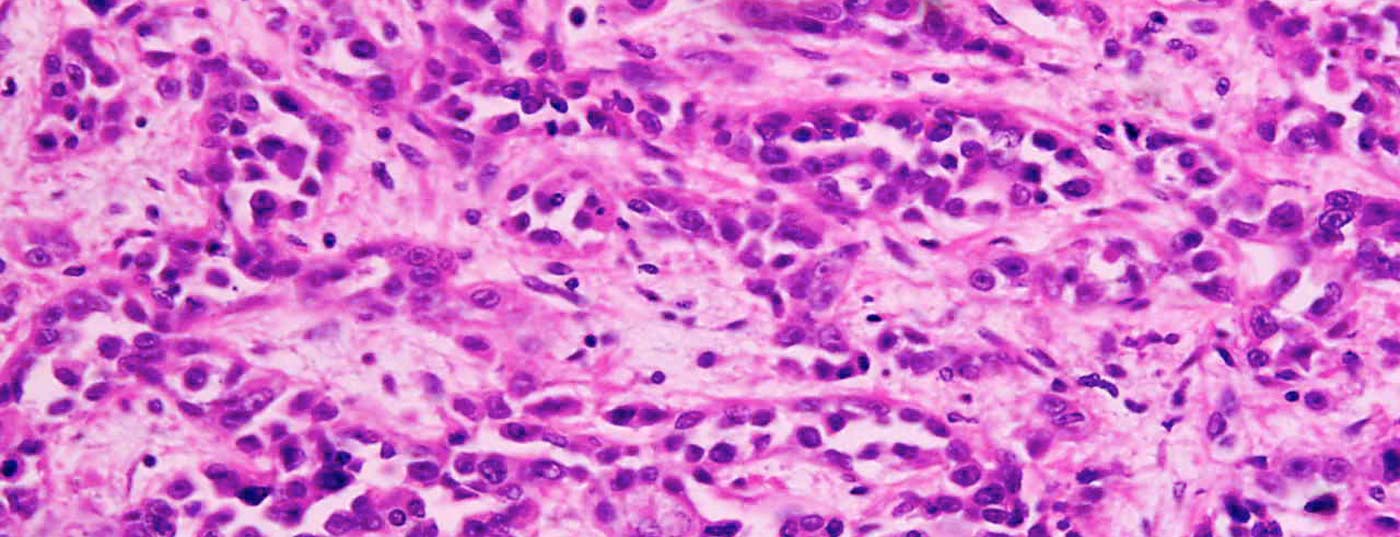Themed “Applying Innovation, Transforming Care, Advancing Equity,” ASCO-GI celebrated its 20th anniversary this year. The focus this year was primarily on current findings relating to gastric carcinoma. However, further studies on other entities also yielded promising results. Including data on esophageal, hepatocellular, pancreatic, biliary, and colorectal cancers.
Patients with HER2-positive advanced or metastatic adenocarcinoma of the stomach or gastroesophageal junction benefited from immunization with a B-lymphocyte-stimulating HER2-targeted vaccine plus chemotherapy. This treatment management resulted in a profound and durable response and significantly better overall survival compared with chemotherapy alone (14.0 vs. 8.3 months). This was the conclusion of the open-label Phase II HER-Vaxx HERIZON study. It was based on the open-label phase III ToGA trial, which found a survival benefit for trastuzumab plus chemotherapy in patients with HER2-positive advanced gastric or esophageal cancer. Since this agent is not readily available in India and Eastern Europe, the scientists hoped to achieve similar results by adding HER-Vaxx. With success: median progression-free survival was 6.9 months with HER-Vaxx plus chemotherapy versus 6.0 months with chemotherapy alone. The median duration of response was 30 weeks and 19 weeks, respectively, and the safety profiles of the two groups were similar.
The study enrolled 36 patients with HER2-overexpressing advanced or metastatic disease who had not been previously treated with an anti-HER2 agent. Patients were randomly assigned to receive either HER-Vaxx plus chemotherapy or chemotherapy alone. The experimental group received a 50-microgram dose of HER-Vaxx injected intramuscularly on days 0, 14, 35, and 77, and every nine weeks thereafter until disease progression. Cisplatin plus either fluorouracil or capecitabine or oxaliplatin plus capecitabine was the standard chemotherapy regimen given to participants in both groups (maximum of six cycles or disease progression). The primary endpoint was overall survival.
Negative hyperselection of wild-type tumors.
A biomarker analysis from the PARADIGM trial in metastatic colorectal cancer based on circulating tumor DNA (ctDNA) has shown that the presence or absence of gene alterations may be as important as tumor location in selecting treatment with an epidermal growth factor receptor (EGFR) inhibitor, in metastatic colorectal cancer. In patients without gene alterations (the “hyperselected” population), overall survival was longer with panitumumab than with bevacizumab, regardless of the lateral location of the primary tumor. In patients with gene alterations, however, panitumumab was similar to or worse than bevacizumab, again regardless of location. These results may help identify appropriate patients for first-line treatment with panitumumab versus bevacizumab. PARADIGM was an open-label, multicenter, phase III trial in patients with metastatic RAS wild-type colorectal cancer evaluating first-line treatment with leucovorin, fluorouracil, and oxaliplatin plus panitumumab or bevacizumab. Panitumumab was shown to improve overall survival in patients with left-sided primary tumors; median survival was 37.9 months with panitumumab versus 34.3 months with bevacizumab. In patients with right-sided tumors, there was no difference between the two therapies.
Combination therapy for hepatocellular carcinoma
The standard therapy for patients with hepatocellular carcinoma who are not candidates for surgery, ablation, and/or transarterial chemoembolization has been sorafenib. This changed with the results of the IMbrave150 trial, which found a survival benefit of atezolizumab plus bevacizumab compared with sorafenib. This also impacted the Phase III NRG/RTOG 1112 trial, which was closed early. Nevertheless, patients with hepatocellular carcinoma treated with stereotactic body radiotherapy (SBRT) and sorafenib were shown to have improved overall and progression-free survival compared with sorafenib alone. Median overall survival was 15.8 months with SBRT plus sorafenib versus 12.3 months with sorafenib alone. The role of radiation therapy in treating this cancer was unclear for decades.
193 patients were randomly assigned to either sorafenib at a dose of 400 mg twice daily or SBRT (27.5-50 Gy in five fractions) followed by sorafenib at a dose of 200 mg twice daily, which was increased to 400 mg twice daily after 28 days. Radiation therapy was personalized and the dose was adjusted individually. In addition to the survival benefit, patients receiving SBRT and sorafenib had median progression-free survival of 9.2 months and 5.5 months, respectively, compared with sorafenib alone. The estimated 12-month rates of progression-free survival were 37% and 20%, respectively. The addition of SBRT also delayed time to disease progression, with a median of 18.5 months versus 9.5 months. There were no significant differences in the safety profiles of the two study arms, and there was strong evidence of improved quality of life at six months with the addition of SBRT, although a formal analysis was lacking.
Congress: Gastrointestinal Cancers Symposium of the Amercian Society for Clinical Oncology (ASCO-GI)
Further reading:
- Maglakelidze M, Ryspayeva DE, Andric Z, et al.: 2023 ASCO GI Cancers Symposium. Abstract 289. Presented January 19, 2023.
- Bang YJ, Van Cutsem E, Feyereislova A, et al.: Lancet 376: 687–697, 2010.
- Shitara K, Muro K, Watanabe J, et al.: Abstract 11. Presented January 21, 2023.
- Yoshino T, Uetake H, Tsuchihara K, et al.: Clin Colorectal Cancer 16: 158–163, 2017.
- Dawson LA, Winter KA, Knox JJ, et al.: 2023 ASCO GI Cancers Symposium. Abstract 489. Presented January 20, 2023.
- Finn RS, Qin S, Ikeda M, et al.: N Engl J Med 2020; 382: 1894–1905.
InFo ONKOLOGIE & HÄMATOLOGIE 2023; 11(3): 20











